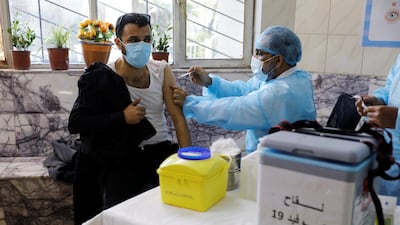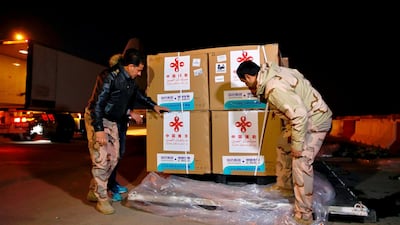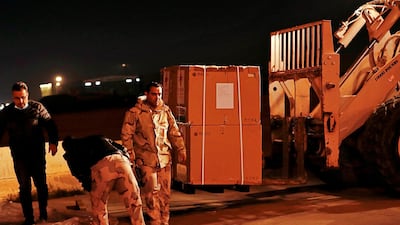Iraq plans to issue a vaccine passport as proof of immunisation against coronavirus for those wishing to travel abroad, the country’s health minister said on Sunday.
Hassan Al Tamimi told the Iraqi News Agency that the ministry will begin compiling information on vaccinations next week.
Iraq launched its campaign last month after the arrival of the Sinopharm, Pfizer-BioNTech and AstraZeneca vaccines it approved.
Many countries have started issuing vaccine passports or are considering them, and Bahrain became the first Gulf state to adopt the policy in February.
The arrival of the vaccines met with a lukewarm response from the public in Iraq, many of whom have voiced fears for their health and safety.
In response, the government last week issued decrees making vaccination compulsory for certain groups, including government employees and medical workers at hospitals, clinics, pharmacies and laboratories.
People working in restaurants, shopping centres and factories under the supervision of the Health Ministry must also be vaccinated.
Staff and visitors to some government buildings, including pension departments, traffic directorates, and passport offices, will not be allowed to enter unless they show either a negative PCR test or proof of vaccination.
The decrees have increased uptake of the vaccine, with many more people requesting it at the hospitals and medical centres where it is available.
As of Saturday, about 215,801 Iraqi citizens have been given vaccines, according to Health Ministry figures.
Iraq is experiencing a new wave of the coronavirus.
This month it reported its highest number of daily cases yet with 8,331 infections.
On Saturday, the country registered 6,552 new cases and 33 deaths, taking the total number of infections to 970,987 and fatalities to 14,948.
In an effort to contain the spread of the virus, Iraqi health authorities rushed to impose night-time movement restrictions nationwide.
Iraq suffers a chronic shortage of medicines, trained medical staff and clinics.










